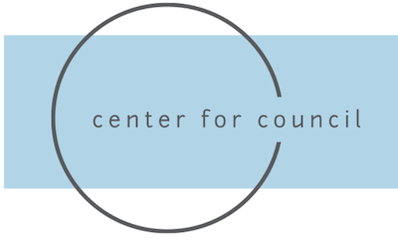|
Center for Council's Peace Officer Wellness, Empathy & Resilience (POWER) Training for law enforcement officers has now been recognized and certified as an effective and valuable training protocol by California's Commission on Peace Officer Standards and Training (POST). In granting this statewide certification, POST will provide officers who participate with credit toward their annual requirement of training hours in the areas of "De-Escalation and Interpersonal Communication." Participation in POWER will also satisfy the annual "perishable skills requirement" in the area of interpersonal communication. This recognition by POST is a powerful affirmation of the importance and efficacy of innovative training programs like POWER and will help establish this program as a critical tool supporting officer wellness, self-regulation and performance. Center for Council launched the POWER Training course with six cohorts of LAPD officers (150 officers), initially, funded by resources provided through the state's Innovations Grant Program. Statewide POST certification will enable C4C to adapt and customize program delivery to meet the needs of a variety of other interested law enforcement and corrections agencies and to further expand this training program throughout California and beyond.
1 Comment
 Through the generosity of local philanthropists, a team of Center for Council trainers travelled to Jacksonville, Florida, to engage with local community based organizations, and with law enforcement, in the hope that the work of Council would be a nourishing and relevant practice for this diverse and challenged community. Our team sat in Council with the staff of several dynamic and energized CBOs, including JASMYN (Jacksonville Area Sexual Minority Youth Network), NAMI (National Alliance on Mental Illness), JPEF (Jacksonville Public Education Fund), JCRP (Jacksonville Community Remembrance Project), and K-9s for Warriors. In addition to this diverse group of organizations, our team was invited to meet with Sheriff Mike Williams, and the staff of the Jacksonville Sheriff's Office, about our Peace Officer Wellness, Empathy & Resilience Training program. The response to this initial engagement was extremely positive and inspiring and has led to design of a more in-depth training program that will unfold throughout the Jacksonville area over the Spring and Summer of 2020. We are thrilled to be collaborating with this dynamic community, engaging deeply with staff of both the social justice and law enforcement community. Our programs are tailored to meet participants where they are, providing a nourishing container for staff to reaffirm their commitment to their mission, strengthen their ability to sustain and flourish in highly stressful environments, explore ways to collaborate internally and with allies, and develop useful skills to serve their clients and stakeholders. Ultimately, the intention is to explore weaving unlikely allies in the model of C4C's "Cops & Communities: Circling Up." We are very excited to partner with the Jacksonville community in this powerful and critical work.
 As part of a new initiative funded by the State of California, Center for Council will partner with the Commission on Peace Officer Standards and Training (POST), to train LAPD officers in Council practice and mindfulness. The intensive program, Peace Officer Wellness, Empathy and Resilience (POWER) Training, is the first training of its kind to be certified state-wide for police and correctional officers through POST. Center for Council’s POWER Training features a robust science-based curriculum, supporting the understanding and integration of mindfulness training and compassion-based dialogic practices. This innovative six-month course teaches participants to cultivate an enhanced awareness of themselves and their surroundings, and an ability to acknowledge and articulate thoughts and emotions without immediately reacting to them. These principles aid in decreasing use of force and officer-involved shootings by providing a path to de-escalation that is discerning and compassion-based, rather than reactive. Through learning the practice of Council and engaging in selected mindfulness activities, participating officers will receive training in wellness-related areas such as stress management and self-care. The course will explore issues of implicit bias, use of force and de-escalation, as well as cultural diversity, and community policing. Officers will meet weekly in “Council Huddles” to explore together the ways the curriculum and weekly mindfulness practices are impacting them. Center for Council is thrilled to continue to expand our work with law enforcement agencies. The organization is deeply committed to addressing systems where compassion-based practices can positively shift the culture and build a more connected and resilient community for all.  For the first time ever, Center for Council has begun working with Los Angeles Police Department (LAPD) officers. The Wellness and Resiliency Skills Training is intended to teach mindfulness techniques and the Council practice to mitigate on-the-job stressors and enhance performance, cultivate awareness, and improve community relations. Currently taking place in the LAPD South Bureau, our program is led by Center for Council Executive Director Jared Seide and Richard Goerling, a police Lieutenant who regularly brings mindfulness workshops to police agencies around the country. Center for Council’s program focuses on enhancing skills for wellness and resiliency that support self-awareness, self-regulation and situational awareness, leading to a healthier culture of policing, more adept stress management, and more skillful relations with communities. The Wellness and Resiliency Skills Training format includes an immersive training workshop, followed by weekly mindfulness and Council practice assignments for small groups of participants. The six-month program is comprised of four modules with exercises and readings that explore physical, mental, emotional, and energetic awareness. The curriculum offers a deep exploration of the science and experience of mindfulness and compassionate communication as it relates to stress, resiliency, performance, and community building. Unlike other mindfulness programs, the Wellness and Resiliency Skills Training presents an interactive, engaged, and on-going series of workshops and activities that provides participants with the tools and skills to integrate this work into their professional and personal lives. The Council process is a flexible and peer-led format for integrating the material covered over the course of the program and is intended to offer an ongoing and sustainable resource for deepening individual skills, building community, and strengthening team support. The response thus far has been overwhelmingly positive and engaged, with participants reporting that they have been “sleeping better and being more mindful” and are more easily able “to decompress at the end of the day.” For Center for Council, this program has been years in the making. "We are deeply committed to building compassion-based practices to foster individual and community health -- and a critical priority for us is supporting law enforcement officers in an effective and holistic way," explained Center for Council Executive Director Jared Seide. We are thrilled to expand our reach to law enforcement officers working in our Los Angeles communities.  The California Correctional Peace Officer Association (CCPOA) has taken an important step in addressing officer stress, burnout and dysfunction. Recognizing that a negative correctional environment is damaging to the mental, emotional, and physical health of correctional officers and inmates alike, is damaging to the quality and efficacy of rehabilitation programs aimed at reducing recidivism, and is costly to local governments as well as the state, CCPOA hosted a by-invitation policy convening on Officer Behavioral Health and Wellness, March 27-28, in Sacramento. A cross-section of individuals were invited from the corrections, healthcare, curriculum and training, research and policymaking communities. Presentations and discussions touched on the way a stressful workplace and career can cause adverse health issues and how the toxicity and dysfunction often found in the corrections environment impacts everyone involved. Officers spoke compellingly about how the job had impacted them: “You have to become somewhat shut off – unfortunately that leads to being jaded and mistrustful because you see ulterior motives in everyone…” Union leaders spoke on their behalf: “We want our members to hear that it’s okay to feel, it’s okay to care,” said one. A recent survey presented some striking preliminary findings: 1 in 3 correctional officers have people in their lives who have expressed concern about their mental/physical health; 30% binge drink on a regular basis; 1 in 9 have considered or attempted suicide and 69% say they would "get out of corrections" if they could find a suitable job in another arena. Interestingly, 88% of correctional officers want more “stress management training.”  Day Two began with the surprise arrival of Governor Jerry Brown, who spoke passionately to the group about the critical importance of wellness, especially in an environment as stressful and challenging as corrections. The Governor applauded the initiative and committed to support innovation in improving correctional culture before his term in office ends. He promised to direct his staff to collaborate with stakeholders in order to generate bold solutions to this pressing need. CDCR Secretary Scott Kernan also was present and discussed his personal commitment to supporting new initiatives that impact officer health and wellness. Center for Council is eager to play a role in the creation of a healthier, more resilient correctional culture and to collaborate in visioning and innovating with compassion-based practices for fostering greater presence, more skillful communication and more wholesome relationships among all stakeholders in this challenging arena. We are grateful to be included in these initial convenings and look forward to piloting council-based resiliency skills programs for officers that are impactful and sustainable. Our team of veteran and prospective Council trainers spent a dynamic and energized day with Detective Lieutenant Richard Goerling, of the Hillsboro Police Department in Oregon. In addition to his experience in the Coast Guard, Richard has worked in civilian law enforcement for over twenty years and has extensive experience in patrol operations and criminal investigations. He has developed a mindfulness-based stress reduction (MBSR) training for first responders focusing on resiliency and performance/leadership in a policing environment. Over the last decade, Richard has spearheaded the introduction of MBSR-based training into policing in the United States and is a leader in the greater cultural transformation toward a compassionate, skillful and resilient warrior ethos.  Richard anchored a critical conversation around the experience of law enforcement officers and the enormous stress and challenges they face. This professional development session was part of Center for Council’s emerging programming geared for law enforcement. This new work brings together mindfulness with Council practice and emphasizes practical skills for recognizing and managing stress, reading behavioral cues and strengthening interpersonal relations to create a more positive, healthy officer culture and to improve performance. Our Social Justice Council Project trainers have had a great deal of experience with community-based organizations that grapple with complicated relationships with local law enforcement. The session focused both on Richard’s work on internal police culture and on how mindfulness and Council can create more wholesome and healthy community dialogue and relationships. Center for Council’s emerging work with both local law enforcement and with correctional officers (in California prisons where our Inmate Council Program has been initiated) will go a long way toward bringing self-regulation and resiliency skills to officers, as well as Council-based convening practices. We are also developing programming that builds officer/activist co-facilitation teams intended to deepen community dialogue about healing historic wounds and improving police-community relations. Read more about our Wellness & Resiliency Skills Training for Officers – and, for more on Richard’s programs for stress reduction for law enforcement, check out this from CNN's Fareed Zakaria’s “Last Look.”
|
Categories
All
Archives
March 2024
|
|
|
About |
|





 RSS Feed
RSS Feed
